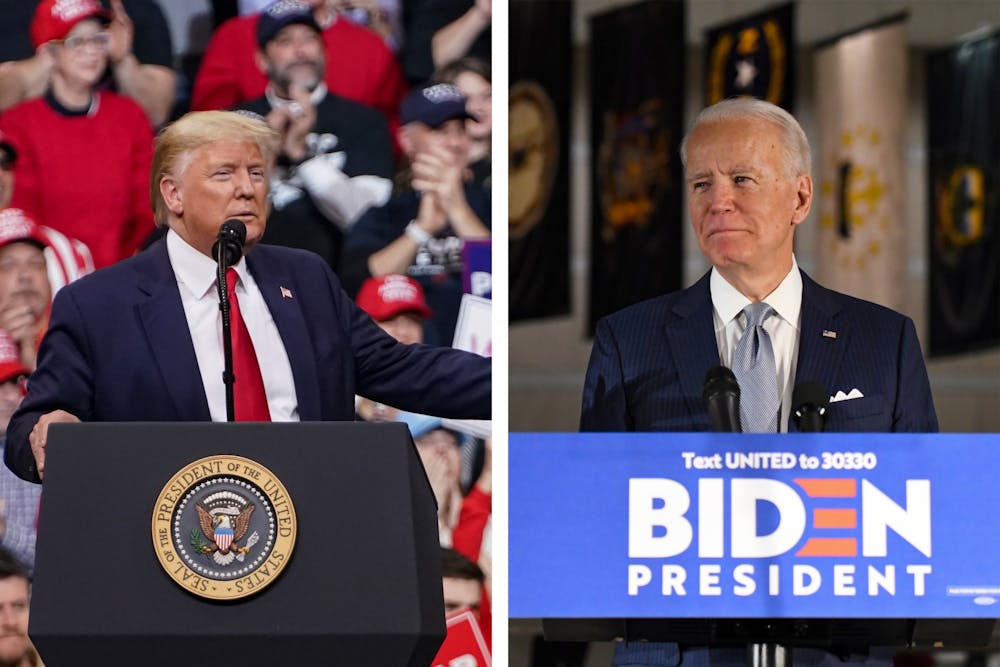Any passive politics enthusiast knows that the outcome of this election is as unpredictable as ever. With the issues of race relations, climate change, and COVID-19 on the line, this voting season will determine whether the nation can heal after months of conflict, not to mention whether the elected candidate can reorient the US down a path toward sustainability. Current polls anticipate that former Vice President Biden will come out on top, though one can never be sure. As we learned in 2016, a candidate who does not win the popular vote may still be inaugurated due to the electoral college. Whether the US people favor this institution is another question, however.
In a 2020 survey conducted by the Pew Research Center, 58 percent of Americans responded that the Constitution should be amended to abolish the Electoral College and rely on the popular vote. The problem lies deeper than dissatisfaction with the outcome of the 2016 election. In stark contrast to the way representatives in the Senate are elected, presidential candidates are tasked with accumulating 270 electoral votes to win, votes that are allocated differently to states with different populations. California, for example, is worth nearly 20 times the number of electoral votes as Wyoming, but each person's vote in California counts for less than a third of the vote of someone in Wyoming. And with the exception of Maine and Nebraska, every state functions by a winner-take-all basis. Every electoral vote in a state ultimately goes to a single candidate, regardless of whether he or she wins by a landslide or by only several hundred votes.
Such mechanisms seem to point toward a common theme — that some people’s voice matters more than others’. America’s electoral college, after all, draws an inevitable distinction between large and small states, not to mention swing and safe states, whose impacts on the race to 270 are inherently different. As part of his effort to mobilize voters in Texas, Senator Bernie Sanders said it best: on October 13, he tweeted “If we have a high voter turnout in Texas and Joe Biden receives those 38 Electoral College votes, turn off the TV because that means Biden will be the next President of the United States of America.” Alongside the 2020 election’s unpredictability is thus a more prevailing sense of over-predictability that leaves some voters feeling aloof and unimportant to the nation’s democracy.
Each presidential election, voter turnout hovers between 50 and 60 percent, not all that impressive for the world’s so-called beacon of democracy. In contrast, turnout in Sweden and South Korea has been around 80 percent in recent years. All things considered, the notion that one’s vote does not count is undoubtedly a factor in this consistent low voter participation. When more than half of a nation signals doubt about the way our electoral system operates, there is undeniably a crisis of confidence, or at least a need for reconsideration of the nation’s traditions.
However, with Election Day coming up in arguably one of the most important election cycles of the 21st century, there is a need to bite the bullet. Students at Penn, whether or not they are registered to vote in Pennsylvania, should vote, regardless of the impact they anticipate making on the outcome.
When a system like the Electoral College has flaws, the long-term approach should be to seek recourse and change its structural underpinnings. In the short term, however, abandoning a still-active system does a disservice to everyone else. It creates a wave of anti-voting sentiment which undermines the representative capacity of the elected candidate. A representative democracy is only as potent as the number of people it represents.
For better or worse, the Electoral College is here to stay and with it, some inherent injustices. However, with the well-being of millions on the line, inaction is simply not an option. Tomorrow, go vote. Encourage your family members back home to vote. Because an arguably faulty system is not a reason to abandon the future of your country.
ANDY YOON is a first-year student in the Huntsman Program. His email address is andyy327@wharton.upenn.edu.









